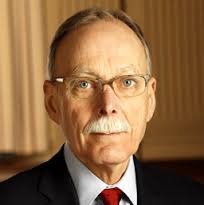Some Hopeful Perspective on Foreclosures and Abandoned Homes
Foreclosures and vacant homes in some of Milwaukee’s most challenging neighborhoods – sounds like a pretty grim subject, right? But, without sugar coating the serious problems involved, an “On the Issues with Mike Gousha” program at Eckstein Hall on Monday offered optimistic and upbeat perspectives.
Two reasons were highlighted: There are programs underway in the city that are successfully taking empty homes, reviving them, and putting them in the hands of eager owners who are want to be successful, responsible owners. And Milwaukee’s foreclose and abandoned home problems are less formidable and being managed more successfully than in some other urban centers.
Gousha spoke with Michael Gosman, assistant director of ACTS Housing; Willie Smith, director of housing for the Northwest Side Community Development Corporation; and Aaron Szopinski, housing policy director for the City of Milwaukee. ACTS and the Northwest Side organization are both non-profits involved in turning vacant homes around and putting new owners in them.

